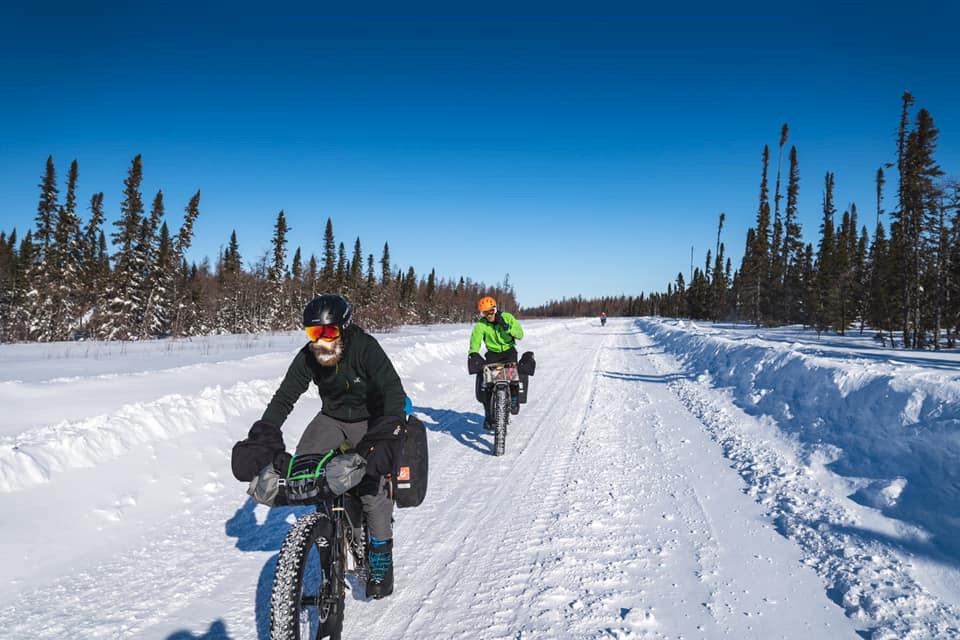In March of 2020, former professional cyclists Ryan Atkins, Eric Batty and Buck Miller will attempt to fat bike the entire length of the world’s longest seasonal road – the Wapusk Trail – which is 750 kilometres from Peawanuck First Nation in Ontario’s Hudson’s Bay region, through Polar Bear Provincial Park, Fort Severn First Nation, Shamattawa First Nation and ending in Gillam.
The team, who will be eating freeze-dried food on the trail, is raising $10,000 through the expedition to support True North Aid, a non-governmental organization that supports remote Indigenous communities. During the ride, the team’s locations will be uploaded by GPS, along with text updates, and available on the Expeditions Ontario Facebook page.
Miller, whose parents met in Thompson, said the greatest danger on the expedition is exposure, second to polar bears, which might be on the route with the approach of spring.
“We don’t have Canada Goose parkas and snow machines,” he said in a phone interview with the Thompson Citizen. “Our body is our only source of heat. When you are doing athletic endeavours in the north in cold temperatures, heat is also what can kill you. You can’t go too hard because when you start to sweat, you set up your tent when it’s 30 below out, the second you stop moving all that sweat freezes inside your clothes. We don’t have a way to dry that, because we don’t have a prospector’s tent with a wood stove. When we ride our bike, we have very little clothing on, about the same as you would on a fall day. We need to make sure all the sweat is off our clothes and off our bodies. So we wear clothes that breathe quite a bit.”
All three men will be sleeping in a single mountaineering tent, which affords for quick set-up and breakdown, as opposed to a hot tent and stove, which are more comfortable, but time-intensive.
“It’s the same kind of tent that you’d use on Mt. Everest,” Miller explained. “We’ve come through the [hot tent] evolution already. The last three expeditions we used an ultra-light tepee tent with a titanium wood stove. This year we decided to go cold [tent] because we wanted to save one hour in the morning and one hour at night setting up in order to spend more time on the trail.”
In 2018, the trio crossed central Ontario’s Algonquin Park during its 125th anniversary, spending nine days skiing and snowshoeing 170 kilometres pulling freight toboggans.
“In February of 2019, together with pro tour cyclist Ted King, we started the James Bay Descent,” the team said. “A 638 kilometre unsupported fat bike expedition that attempted to cross from Ontario to the territory of Nunavut on James Bay and continue down the James Bay winter road through Attawapiskat, Kashechewan, Fort Albany, Moosonee, Moose Factory and finish in Smooth Rock Falls, which raised $8,000 for the Moosonee Native Friendship Centre.”
The team’s expedition will be chronicled on the team’s Facebook page Expeditions Ontario and Instagram account @Expeditions_Ontario, as well as on the member’s Instagram feeds – @Ericbatty, @Ryanatkinsdiet and @buckyjmiller.
To donate, visit truenorthaid.ca.




